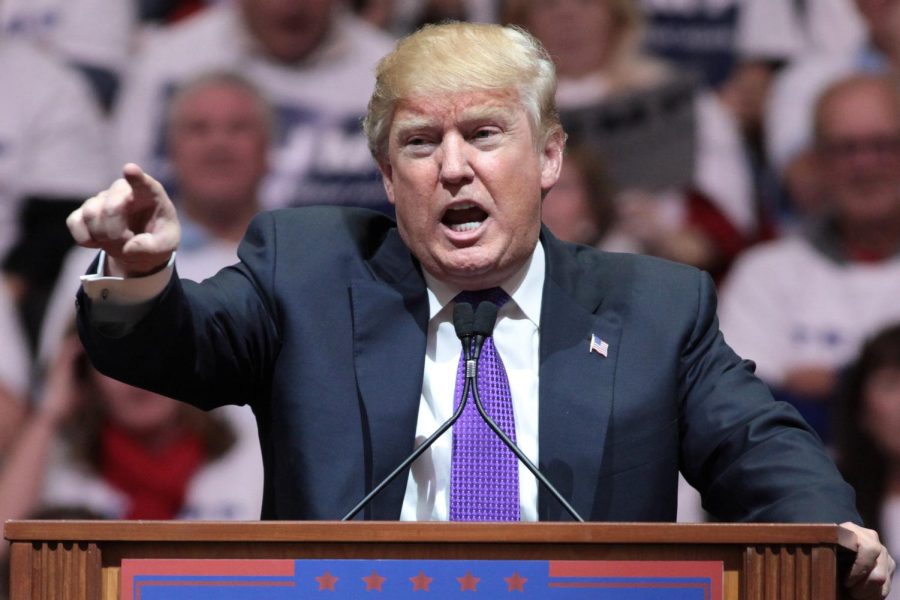A grand jury indicted Trump, and that’s all that matters
The indictment of Trump should hardly be viewed as remarkable, and even less so subject to critique
Donald Trump speaks at a rally. He is the first former U.S. president to be indicted.
April 18, 2023
When a prosecutor believes that a person has committed a felony, that person’s case is reviewed by a grand jury. If this grand jury is convinced that sufficient evidence exists to charge that person with that crime, then that person is indicted for the aforementioned crime (or crimes).
The Manhattan District Attorney’s office demonstrated their belief that Donald Trump had committed a felony of falsifying business records in January 2023, when they impaneled a 23-person grand jury to review his alleged role in the payment — and cover-up — of hush money to Stormy Daniels during his 2016 presidential campaign. This is pursuant to the first requirement mentioned above. Trump’s case was subject to review by this grand jury, which met for two months before voting to indict on March 30. This is pursuant to the other requirement listed above. Subsequently, Trump was notified of indictment and arraigned on April 4.
Trump’s indictment should hardly be reviewed as remarkable. There are no other notable extenuating circumstances in the case. Trump is not the sitting President of the United States and is not shielded by any form of executive immunity from prosecution, and moreover, the subpoena used to garner the financial records used as evidence in the case was upheld by the Supreme Court in Trump v. Vance, the indictment of Trump should hardly be viewed as remarkable, and even less so subject to critique.
Update: A previous version of this article contained a typographical error in the headline.














